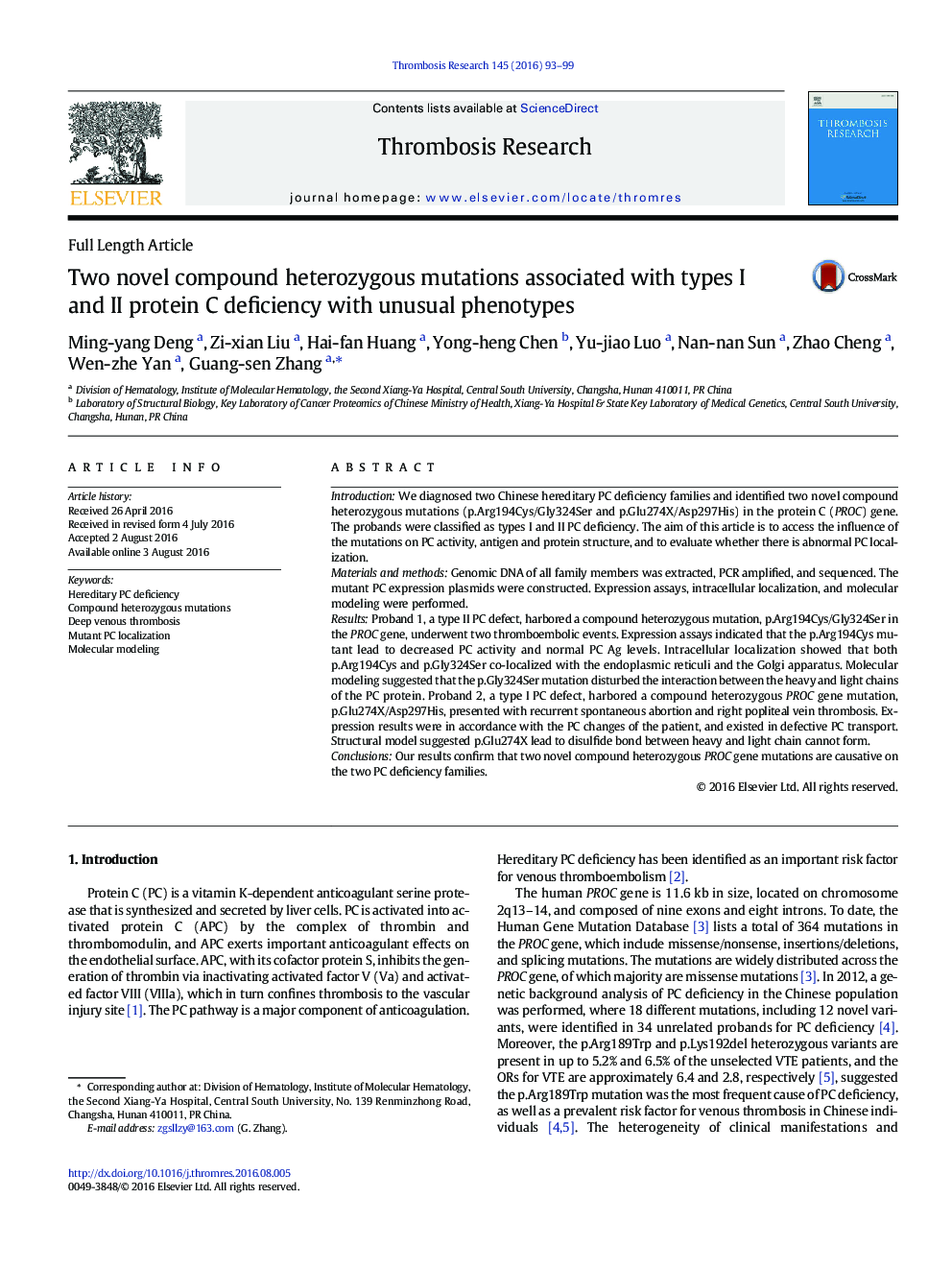| Article ID | Journal | Published Year | Pages | File Type |
|---|---|---|---|---|
| 3026877 | Thrombosis Research | 2016 | 7 Pages |
•Identification of two novel compound heterozygous mutations in the PROC gene•The mutations caused different PC deficiency subtypes and unusual phenotypes.•The mutations were analyzed by in vitro expression and modeling.•Confirmation of the pathogenicity of the two compound heterozygous mutations
IntroductionWe diagnosed two Chinese hereditary PC deficiency families and identified two novel compound heterozygous mutations (p.Arg194Cys/Gly324Ser and p.Glu274X/Asp297His) in the protein C (PROC) gene. The probands were classified as types I and II PC deficiency. The aim of this article is to access the influence of the mutations on PC activity, antigen and protein structure, and to evaluate whether there is abnormal PC localization.Materials and methodsGenomic DNA of all family members was extracted, PCR amplified, and sequenced. The mutant PC expression plasmids were constructed. Expression assays, intracellular localization, and molecular modeling were performed.ResultsProband 1, a type II PC defect, harbored a compound heterozygous mutation, p.Arg194Cys/Gly324Ser in the PROC gene, underwent two thromboembolic events. Expression assays indicated that the p.Arg194Cys mutant lead to decreased PC activity and normal PC Ag levels. Intracellular localization showed that both p.Arg194Cys and p.Gly324Ser co-localized with the endoplasmic reticuli and the Golgi apparatus. Molecular modeling suggested that the p.Gly324Ser mutation disturbed the interaction between the heavy and light chains of the PC protein. Proband 2, a type I PC defect, harbored a compound heterozygous PROC gene mutation, p.Glu274X/Asp297His, presented with recurrent spontaneous abortion and right popliteal vein thrombosis. Expression results were in accordance with the PC changes of the patient, and existed in defective PC transport. Structural model suggested p.Glu274X lead to disulfide bond between heavy and light chain cannot form.ConclusionsOur results confirm that two novel compound heterozygous PROC gene mutations are causative on the two PC deficiency families.
